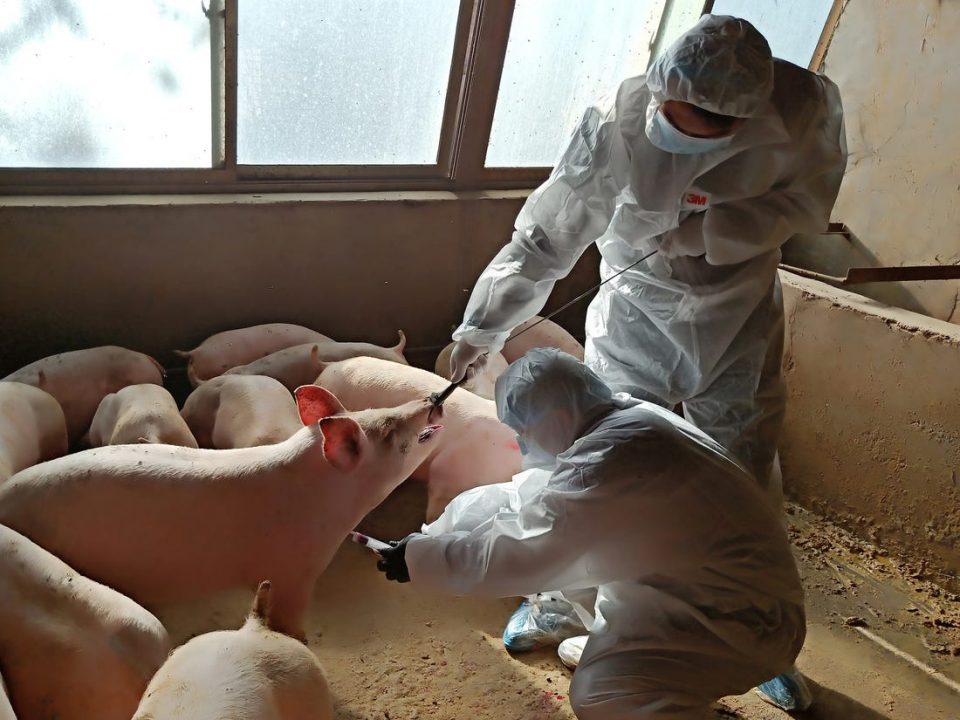The researchers also added, “It is of concern that human infection of G4 virus will further human adaptation and increase the risk of a human pandemic.”
A new type of swine flu has been discovered by researchers in China, which is capable of triggering a pandemic, according to a study published Monday in the US science journal PNAS.
This virus descending from the H1N1 strain, which caused a pandemic in 2009, is named G4.
The authors, scientists at Chinese universities, and China’s Center for Disease Control and Prevention say that the new virus possesses “all the essential hallmarks of being highly adapted to infect human.”
30,000 nasal swabs from pigs in slaughterhouses in 10 Chinese provinces were taken between 2011 and 2018 with veterinary hospital allowing them to isolate 179 swine flu viruses.
The majority of them were of a new kind that has been dominant among pigs since 2016.
The researchers then went on to carry out experiments on ferrets, which are widely used in flu studies because they experience similar symptoms to humans.
Replicating in human cells and causing more serious symptoms in ferrets than other viruses do, G4 was observed to be highly infectious. The tests also showed that any immunity humans gain from exposure to seasonal flu is not capable of protecting against G4.
According to antibody blood tests which showed exposure to the virus, around 10 swine workers have already been infected. The tests also revealed that as many as 4.4% of the general population also appeared to have been exposed.
The scientists’ main worry is- though the virus has therefore already passed from animals to humans, but there is no evidence yet that it can be passed from human to human.”
The researchers also added, “It is of concern that human infection of G4 virus will further human adaptation and increase the risk of a human pandemic.”
The authors also called for urgent measures to monitor people working with pigs.
The head of the department of veterinary medicine at Cambridge University, James Wood, said, “The work comes as a salutary reminder that we are constantly at risk of new emergence of zoonotic pathogens and that farmed animals – with which humans have greater contact than with wildlife – may act as the source for important pandemic viruses.”
As an independent media platform, we do not take advertisements from governments and corporate houses. It is you, our readers, who have supported us on our journey to do honest and unbiased journalism. Please contribute, so that we can continue to do the same in future.

